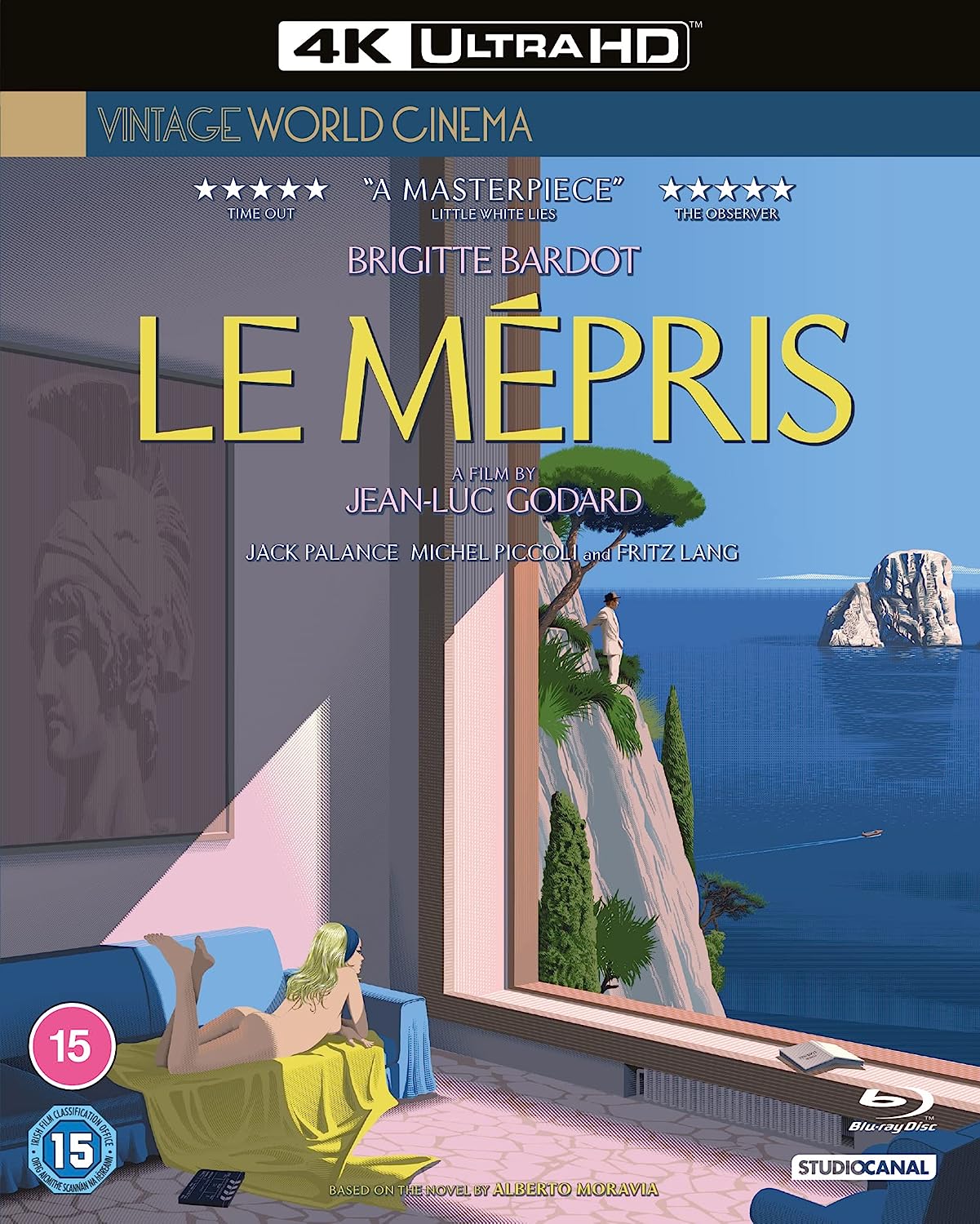Directed by Jean-Luc Godard, pioneer of the French New Wave film movement that radically changed the face of cinema in the late 1950s and 60s, Le Mépris (Contempt) was released in 1963. To mark its 60th anniversary, the French film production and distribution company STUDIOCANAL will release a brand new 4K restoration of the film on 26th June. It will be available on 4K UHD, Blu-Ray, DVD, and Digital from that date.
Based upon the 1954 existential novel, Il disprezzo (known in English as Contempt or A Ghost At Noon) written by Alberto Moravia, Le Mépris begins with this quote from André Bazin, the renowned and influential French film critic and film theorist.
“Cinema substitutes the real world with one that accords with our desires.”
And this quote gives us a strong indication as to where the central premise of Le Mépris lies. Ostensibly a film about filmmaking, Le Mépris explores the tension that exists between truth, integrity, and expediency, both within cinema itself and the intrinsic connection that it shares with life in general.
This dissonance in both art and life is reflected through the dynamic and dialogue that takes place between the film’s four main characters. Jack Palance takes the part of Jeremy Prokosch, an obnoxious and overbearing American producer who has hired the great Austrian film director Fritz Lang (playing himself) to direct a movie of the Ancient Greek epic poem, The Odyssey. However, Prokosch does not share Lang’s vision of a faithful interpretation of The Odyssey, so he then hires Paul Javal (Michel Piccoli) to write a more commercialised screen adaptation for the film. By agreeing to undertake this project, Javal is then brought into deep conflict with his wife Camille, played by Brigitte Bardot.
It could also be argued that Le Mépris is very much about Bardot. At that time, she was the most photographed woman in the world, alongside her being Europe’s most famous actress. To capitalise upon this universal appeal the film’s producers encouraged Godard to cast Bardot in the lead role (his original choice had been the American actress Kim Novak). Furthermore, the opening scene featuring a naked Camille lying on her bed chatting playfully to her husband was added post-production, again at the producers’ behest, leaving the film open to legitimate accusations of sexism.
Notwithstanding such attitudes, and the fact that Le Mépris is probably Jean-Luc Godard’s most conventional film – seemingly less improvised in its style than many of his others, and certainly a lot more restrained in its use of jump cuts and other revolutionary editing techniques much favoured by Godard at that time – it remains a cinematic tour-de-force. Set largely in and around the spectacular Villa Malaparte on Capri in Italy’s Bay of Naples, the island is brought to even more vivid life by the masterful cinematography of Raoul Coutard and enhanced further by the deep clarity of the film’s colours that have been extracted by this excellent restoration. George Delerue’s poignant score adds to the dramatic impact of this film classic.




